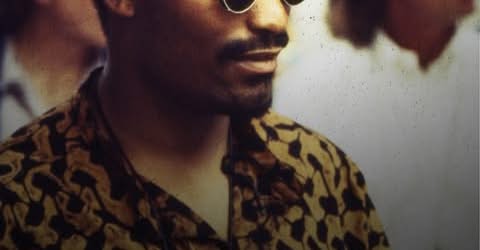Hollywood Remembers John Singleton: Pioneering Director Who Gave Voice to a Generation
The world of film and storytelling suffered a profound loss with the passing of John Singleton, a groundbreaking American director, screenwriter, and producer whose body of work not only captured the complexities of Black life in America but also changed the trajectory of Hollywood itself. Singleton was more than a filmmaker—he was a cultural force, a pioneer, and a fearless voice who used cinema to challenge, enlighten, and inspire.
A Groundbreaking Voice in Hollywood
Born on January 6, 1968, in Los Angeles, California, John Singleton was a child of South Central L.A., a neighborhood whose stories, struggles, and triumphs would deeply inform his artistic voice. He studied screenwriting at the University of Southern California’s School of Cinematic Arts, where his raw talent was quickly recognized. By the time he was in his early twenties, Singleton had made history.
In 1991, at just 23 years old, Singleton became the youngest person ever nominated for Best Director at the Academy Awards—and the first African American to receive that nomination—for his directorial debut, “Boyz n the Hood.” The film, a stark and emotional portrayal of life in South Central Los Angeles, was a critical and commercial success and is now considered a cornerstone of modern American cinema.
“Boyz n the Hood” introduced audiences to the gritty realities of inner-city life and the deep systemic issues affecting Black communities, including gang violence, police brutality, and the absence of opportunity. It also launched the acting careers of Cuba Gooding Jr., Ice Cube, Morris Chestnut, and Angela Bassett, and opened the door for other Black storytellers to bring their narratives to the forefront of the film industry.
Champion of Authentic Storytelling
Throughout his career, Singleton remained committed to telling stories that reflected the authentic Black experience in America. His filmography is filled with works that shine a light on issues often ignored or misrepresented in mainstream media.
Following “Boyz n the Hood,” he went on to direct and write “Poetic Justice” (1993) starring Janet Jackson and Tupac Shakur, a poetic drama about love and loss. He continued with “Higher Learning” (1995), which tackled racial tensions and identity crises in a college setting, and “Rosewood” (1997), a powerful historical drama based on the true story of the 1923 racial massacre in Rosewood, Florida.
He also delved into action with “Shaft” (2000) and “2 Fast 2 Furious” (2003), showcasing his versatility as a director while continuing to advocate for greater diversity in genre films.
Beyond directing, Singleton was an influential producer and showrunner. In the later years of his career, he co-created the FX series “Snowfall,” a gritty drama chronicling the rise of crack cocaine in 1980s Los Angeles. Once again, Singleton drew from real-life experience and gave a platform to stories that needed to be told.
Legacy and Impact
John Singleton’s legacy goes far beyond his accolades and box office success. He broke barriers, mentored young filmmakers, and paved the way for an entire generation of Black artists in Hollywood. Directors like Ryan Coogler, Ava DuVernay, Jordan Peele, and Barry Jenkins have all cited Singleton as a source of inspiration, both for his artistry and for the courage he showed in using his voice.
“He told our stories before it was trendy or marketable,” said Ava DuVernay. “He made it okay to be unapologetically Black in Hollywood.”
In a time when Black filmmakers often struggled to gain recognition, Singleton stood as proof that authenticity and truth could not only resonate with audiences but also command critical and commercial success.
His commitment to community was just as important as his artistic contributions. Singleton often spoke at schools, mentored young writers, and stayed engaged in issues affecting South Central Los Angeles, never forgetting where he came from.
A Life Cut Short
John Singleton passed away on April 28, 2019, after suffering a stroke earlier that month. He was 51 years old. His untimely death was met with a wave of tributes from across the entertainment industry and beyond, with actors, filmmakers, activists, and fans mourning the loss of a visionary whose work touched millions.
In the years since his passing, film festivals, universities, and organizations have continued to honor Singleton’s contributions. His films remain widely studied in film schools, and retrospectives of his work serve as a reminder of his enduring influence.
Remembering a Visionary
John Singleton’s death left a void in Hollywood, but his voice remains powerful through the stories he left behind. He reminded the world that cinema could be both entertainment and activism, that it could move hearts while changing minds.
His legacy lives on every time a Black filmmaker gets a shot to tell their truth. It lives on in every film that dares to reflect reality without compromise. And it lives on in the lives of those he inspired to believe that their voices, too, deserve to be heard.
John Singleton may be gone, but his vision, his courage, and his commitment to truth in storytelling will never be forgotten.
